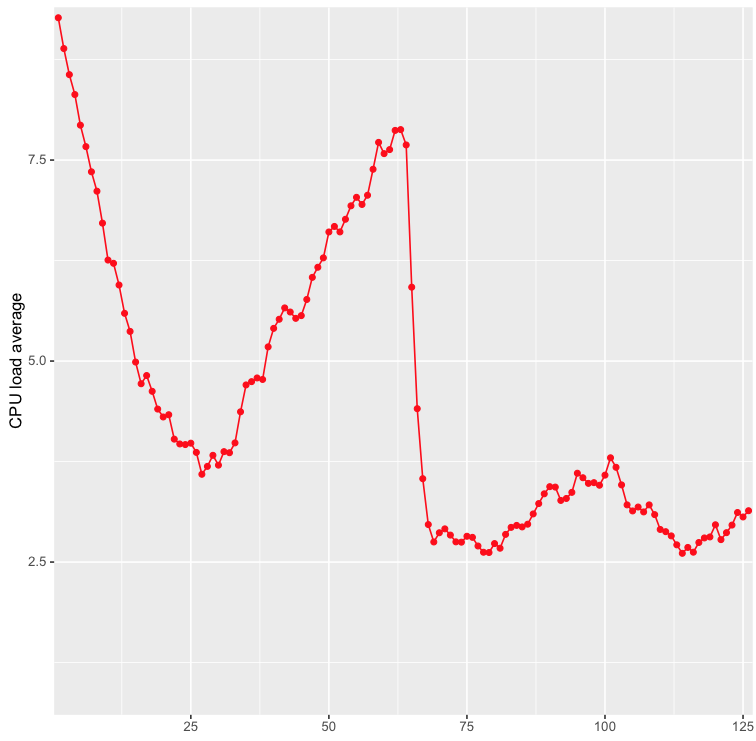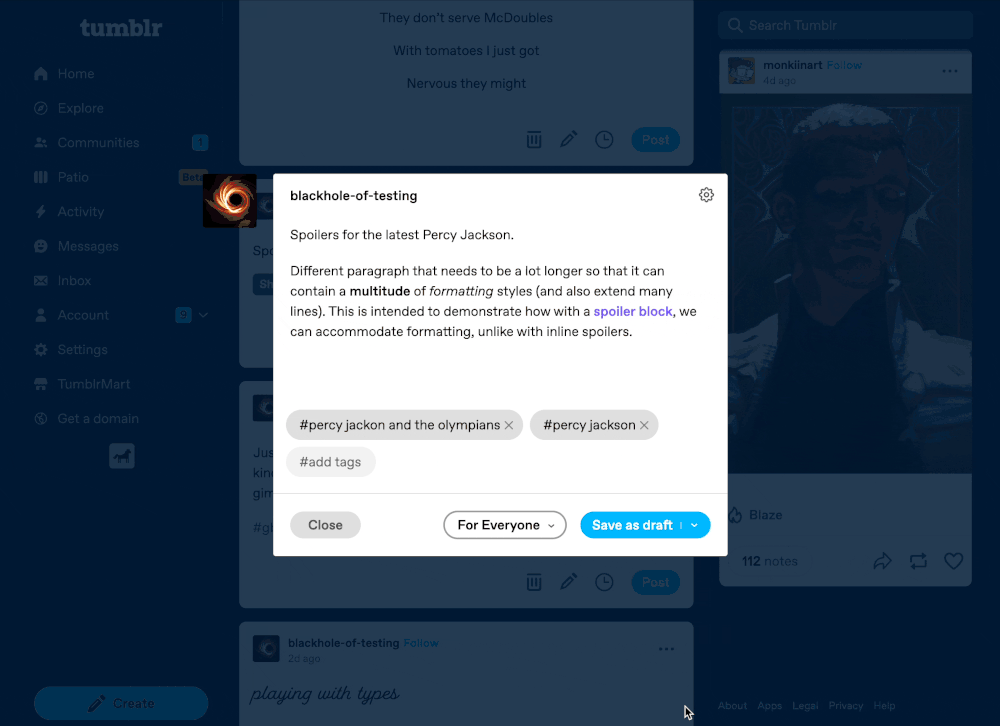PHP 7 at Tumblr
At Tumblr, we’re always looking for new ways to improve the performance of the site. This means things like adding caching to heavily used codepaths, testing out new CDN configurations, or upgrading underlying software.
Recently, in a cross-team effort, we upgraded our full web server fleet from PHP 5 to PHP 7. The whole upgrade was a fun project with some very cool results, so we wanted to share it with you.
Timeline
It all started as a hackday project in the fall of 2015. @oli and @trav got Tumblr running on one of the PHP 7 release candidates. At this point in time, quite a few PHP extensions did not have support for version 7 yet, but there were unofficial forks floating around with (very) experimental support. Nevertheless, it actually ran!
This spring, things were starting to get more stable and we decided it was time to start looking in to upgrading more closely. One of the first things we did was package the new version up so that installation would be easy and consistent. In parallel, we ported our in-house PHP extensions to the new version so everything would be ready and available from the get-go.
A small script was written that would upgrade (or downgrade) a developer’s server. Then, during the late spring and the summer, tests were run (more on this below), PHP package builds iterated on and performance measured and evaluated. As things stabilized we started roping in more developers to do their day-to-day work on PHP 7-enabled machines.
Finally, in the end of August we felt confident in our testing and rolled PHP 7 out to a small percentage of our production servers. Two weeks later, after incrementally ramping up, every server responding to user requests was updated!
Testing
When doing upgrades like this it’s of course very important to test everything to make sure that the code behaves in the same way, and we had a couple of approaches to this.
Phan. In this project, we used it to find code in our codebase that would be incompatible with PHP 7. It made it very easy to find the low-hanging fruit and fix those issues.
We also have a suite of unit and integration tests that helped a lot in identifying what wasn’t working the way it used to. And since normal development continued alongside this project, we needed to make sure no new code was added that wasn’t PHP 7-proof, so we set up our CI tasks to run all tests on both PHP 5 and PHP 7.
Results
So at the end of this rollout, what were the final results? Well, two things stand out as big improvements for us; performance and language features.
Performance
When we rolled PHP 7 out to the first batch of servers we obviously kept a very close eye at the various graphs we have to make sure things are running smoothly. As we mentioned above, we were looking for performance improvements, but the real-world result was striking. Almost immediately saw the latency drop by half, and the CPU load on the servers decrease at least 50%, often more. Not only were our servers serving pages twice as fast, they were doing it using half the amount of CPU resources.


These are graphs from one of the servers that handle our API. As you can see, the latency dropped to less than half, and the load average at peak is now lower than it’s previous lowest point!
Language features
PHP 7 also brings a lot of fun new features that can make the life of the developers at Tumblr a bit easier. Some highlights are:
- Scalar type hints: PHP has historically been fairly poor for type safety, PHP 7 introduces scalar type hints which ensures values passed around conform to specific types (string, bool, int, float, etc).
- Return type declarations: Now, with PHP 7, functions can have explicit return types that the language will enforce. This reduces the need for some boilerplate code and manually checking the return values from functions.
- Anonymous classes: Much like anonymous functions (closures), anonymous classes are constructed at runtime and can simulate a class, conforming to interfaces and even extending other classes. These are great for utility objects like logging classes and useful in unit tests.
- Various security & performance enhancements across the board.
Summary
PHP 7 is pretty rad!
















